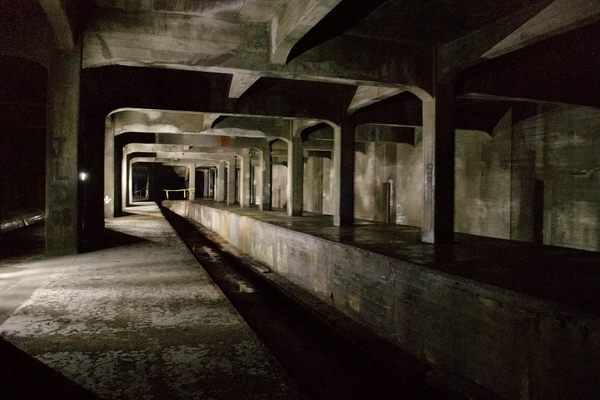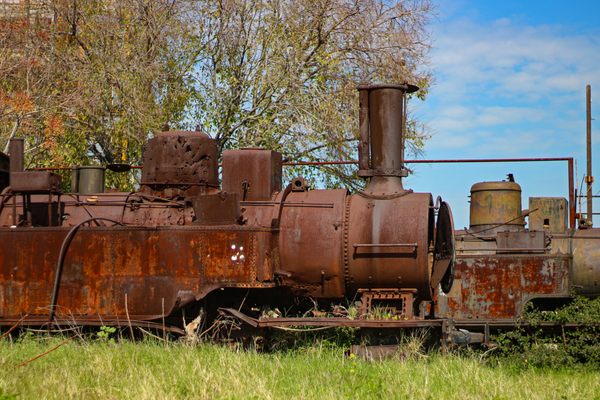Incredible Photographs of the Monumental Power Station That Electrified the Manhattan Rails
Main Support Frame of Engine Unit, March 20, 1902. (Courtesy of New York Transit Museum)
The steam-powered trains that first provided New York City with mass transit quickly became a sooty mess, rumbling over the elevated tracks above the streets and leaving dark clouds in their cacophonous wake. So in 1900 construction began on a massive new facility that would use alternating current (AC) electricity to propel the transit lines of the Second, Third, Sixth, and Ninth avenues in Manhattan.
An exhibition at the New York Transit Museum in downtown Brooklyn called Anatomy of a Powerhouse: Electrifying the El, brings together 31 photographs of the building of the 74th Street Powerhouse. The images are all from an archive of 1,200 photographs donated by the MTA New York City Transit, Department of Subways, Division of Electrical Power Operations. They show the colossal engineering of 6,000 tons of metal — both steel and iron — that went into the machinery. Generators, transformers, steam pipes, and coal conveyors all fit together into what was the world’s largest AC power station. Designed by George H. Pegram, the building radically influenced the future of New York City mass transit when the elevated lines in Manhattan were all electrified by June 25, 1903, even if the fanfare was minimal. Yet the subways are cleaner, safer, and more efficient today thanks to this incredible engineering project.
Such an achievement deserves celebration, and now over a century later Atlas Obscura is partnering with the New York Transit Museum this Thursday, October 2, on an evening called Power Play. Situated alongside Anatomy of a Powerhouse, as well as its companion exhibition ElectriCity: Powering New York’s Rails, the after-hours event will feature music from gypsy punks Amour Obscur, artifacts from the Museum of Interesting Things, and other retrotech-themed marvels to honor this powerful transit history. We hope you’ll join us! Below are some images from Anatomy of a Powerhouse that show the turn-of-the-century grandeur of the 74th Street Powerhouse.
Manhattan Railway Company 74th Street Powerhouse, ca. 1902. (Courtesy of New York Transit Museum)
Workmen Assembling Generator, May 15, 1902. (Courtesy of New York Transit Museum)
Transformers and Rotary Converter, March 6, 1902. (Courtesy of New York Transit Museum)
Steam Pipe and Piston Engine in the Engine Room, December 28, 1902. (Courtesy of New York Transit Museum)
Engine Room, November 18, 1902. (Courtesy of New York Transit Museum)
Construction of Coal and Ash Tower, May 29, 1902. (Courtesy of New York Transit Museum)
Coal Conveyor Belt, May 22, 1902. (Courtesy of New York Transit Museum)
Coal Conveyor Belt Mechanical Gears, April 10, 1902. (Courtesy of New York Transit Museum)
Assembly of Engine Generator Unit, May 29, 1902. (Courtesy of New York Transit Museum)
74th Street Powerhouse, Pressure Gauges & Steam Pressure Wheel for Rotary Generators, February 20, 1902. (Courtesy of New York Transit Museum)










Follow us on Twitter to get the latest on the world's hidden wonders.
Like us on Facebook to get the latest on the world's hidden wonders.
Follow us on Twitter Like us on Facebook